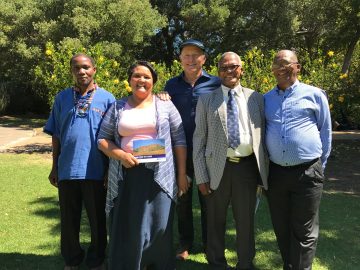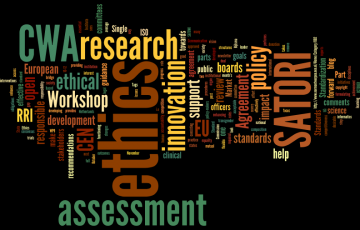-
Looking to the future: will improved ethics assessment give EU research and innovation an edge?
Rowena Rodrigues, Trilateral Research As the SATORI project concludes this month, let’s consider the future of ethics assessment, its challenges, and the role of policy-makers in fostering it to ensure research and innovation (R&I) excellence and global leadership. The…
-
Can conformity assessment enhance ethics assessment practices?

SATORI explored whether conformity assessment, and specifically certification (which is one method of demonstrating conformity), could help facilitate and improve the use and quality of ethics assessment in research and innovation (R&I).
-
On algorithms, accountability and the perils of “instant implementation” of innovation
Warsaw, 20 July 2017 Zuzanna Warso, Helsinki Foundation for Human Rights 2017 marks the 20th anniversary of the Council of Europe Convention on Human Rights and Biomedicine. After two decades, it has become clear that ethical and human rights challenges…
-
Research ethics as a national competitive advantage: an approach to engaging with policy-makers

Many European countries do not have the institutional structure required to implement an ethical impact assessment procedure, and the few who have it use it focus on ethics in life sciences. There is a need to put the establishment of…
-
Integrating Responsible Research and Innovation at Higher Education Institutions

HEIRRI project, integrating Responsible Research and Innovation at Higher Education Institutions By: Marta Cayetano, ACUP (Catalan Association of Public Universities) and GUNi (Global University Network for innovation) The HEIRRI project (Higher Education Institutions and Responsible Research and Innovation) is an initiative funded…
-
Strength in numbers: Why overlapping contributions to a culture of ethics in R&I is not a problem
Whatever level of involvement one has in ongoing developments in the ethics of European research and innovation (R&I), a striking feature of the field that one has to deal with is its diversity in terms of concepts and approaches. Rasmus…
-
To fight exploitation in developing countries, TRUST is what you need!

It now seems clear, at least since the Lund Declaration (2009), that major societal challenges of our times such as global warming, tightening supplies of energy, water and food, pandemics and global health crises, can only be addressed with effective research and innovation, and policies that are global in their scope and which enable cross‐ and trans‐border collaboration.
-
Is the independence of ethics committees at risk?
Is the independence of ethics committees being compromised? The independence and impartiality of ethics committees are critical to ensure that the assessments or reviews they carry out are fair, free from influence, and lawful. Independence and impartiality help to build…
-
“We need to talk about AI”

The December issue of the SATORI newsletter on policy developments in the ethics of research and innovation covers, as usual, a broad range of topics from Europe, and beyond. Topics include: animal welfare, CIOMS guidelines, corporate social responsibility, CRISPR gene-editing,…
-
The SATORI CWA: Implications for research and innovation policy

Our October newsletter covers a variety of topics: algorithmic accountability, changes to organ donation, citizen science, clinical trials, cloned human meat, ethics in design, gender equality, genome interventions, impact of ethics officers, informatics ethics review boards, modernisation of EU copyright…
-
Ethical Challenges for Research On Human-Animal Hybrids

Due to advances in genetic engineering, it is now possible to create human-animal hybrid organisms in the laboratory using pluripotent stem cells. But should we do so? In the U.S., the National Institute of Health (NIH) is considering lifting their moratorium on funding for such research, and the current regulations on the creation of hybrids vary between countries in Europe. The NIH has invited public comment on its proposal to fund research on hybrids, open until 6 September 2016.
-
SATORI launches newsletter and blog!
The blog will highlight areas in which stakeholders may wish to make their views known to policy makers regarding new developments.
